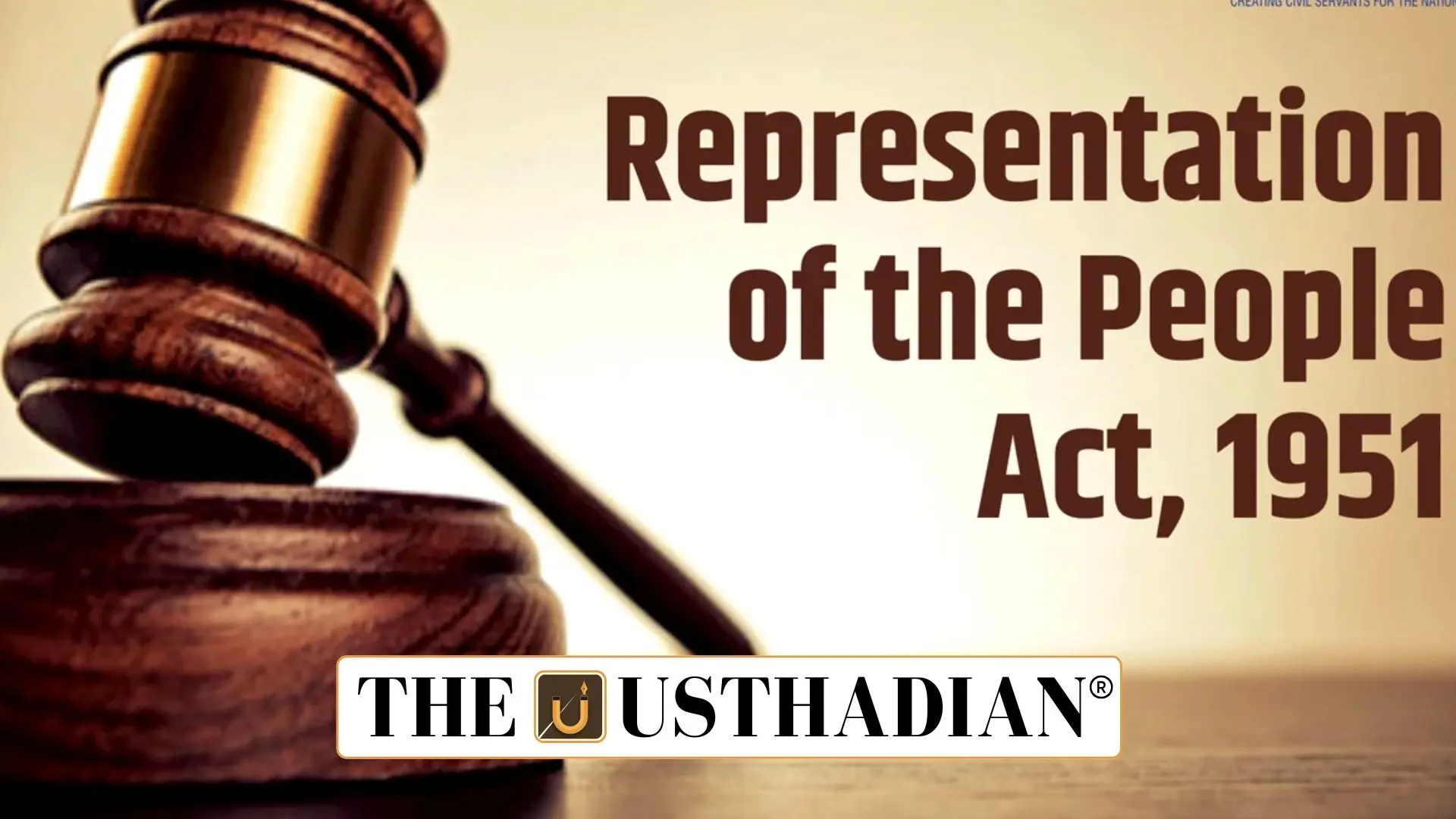Background of the Law
Disqualification Debate: Convicted Politicians and the Representation of the People Act, 1951: The Representation of the People Act, 1951 is the cornerstone of India’s electoral framework. It lays down the rules for conducting elections and specifies when an individual becomes ineligible to contest. Notably, Section 8 of the Act disqualifies individuals convicted of certain offences for a period of six years after their release. In addition, Section 9 imposes a five-year ban on public servants dismissed for corruption or disloyalty. These time-bound penalties are intended to act as a deterrent while still allowing for eventual political rehabilitation.
The Government’s Defense of the Six-Year Period
The central government recently reaffirmed the constitutionality of the six-year disqualification period under the Act. During a legal debate spurred by a petition, officials asserted that limiting disqualification to six years is neither arbitrary nor excessively harsh. They point out that many penal laws around the world include time-bound restrictions, ensuring that penalties are deterrent yet proportionate. Moreover, the government stressed that determining the exact duration of disqualification falls squarely within the purview of Parliament, not the courts.
The Petitioner’s Call for a Lifetime Ban
Opposing this view, advocate Ashwini Kumar Upadhyay filed a petition arguing for a lifetime ban on convicted politicians. The petitioner believes that the current provisions undercut the principles of electoral integrity by allowing individuals with a history of criminality back into politics after only six years. From this perspective, the cycle of crime and subsequent political return erodes public trust in democratic institutions.
Judicial Review Versus Legislative Authority
At the heart of this debate is the question of where legislative power ends and judicial review begins. The government argues that while the courts have the authority to review laws, they should not interfere with decisions that reflect the legislative intent of elected representatives. Any change from the current time-bound ban to a lifetime ban would require an act of Parliament, as it would represent a fundamental rewrite of the existing law.
Constitutional and Practical Implications
The controversy raises important constitutional questions. The balancing act between ensuring fair play in elections and allowing for genuine reform is delicate. A lifetime ban could be seen as unduly punitive, potentially sidelining voices that might have reformed after serving their penalty. On the other hand, maintaining a shorter disqualification period could risk undermining public faith if convicted individuals return to the political arena too quickly.
Static GK Snapshot
| Topic | Fact |
| Law Governing Disqualification | Representation of the People Act, 1951 |
| Section for Conviction-Based Ban | Section 8 – 6 years after release from jail |
| Section for Public Servant Disqualification | Section 9 – 5 years if dismissed for corruption/disloyalty |
| Petition Filed By | Advocate Ashwini Kumar Upadhyay |
| Current Government Position | Six-year disqualification is constitutional and proportionate |
| Proposed Change by Petitioner | Lifetime ban on convicted politicians |
| Judicial Stand | Parliament has legislative authority on disqualification matters |
| Related Legal Principle | Balance between legislative intent and judicial review |








